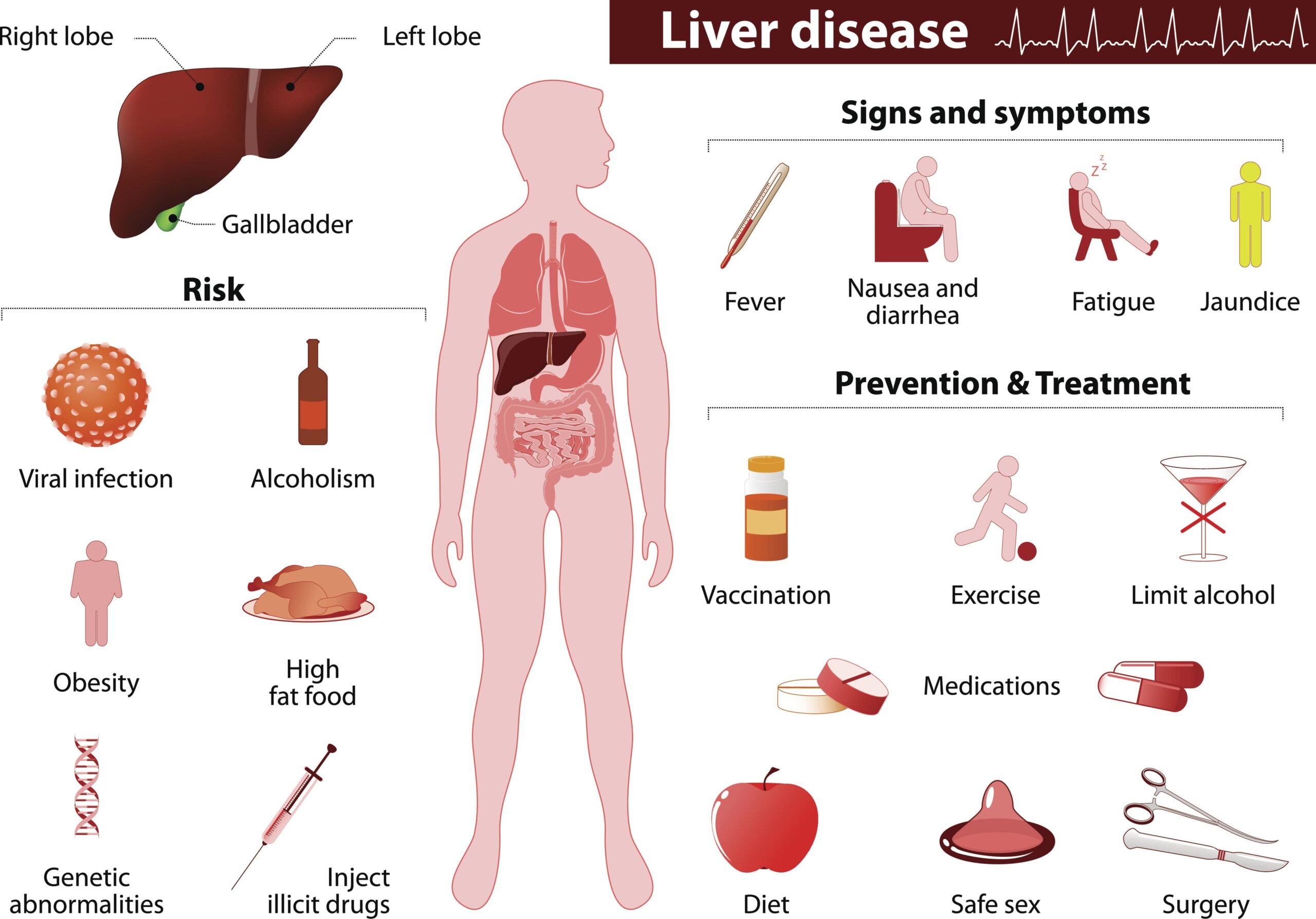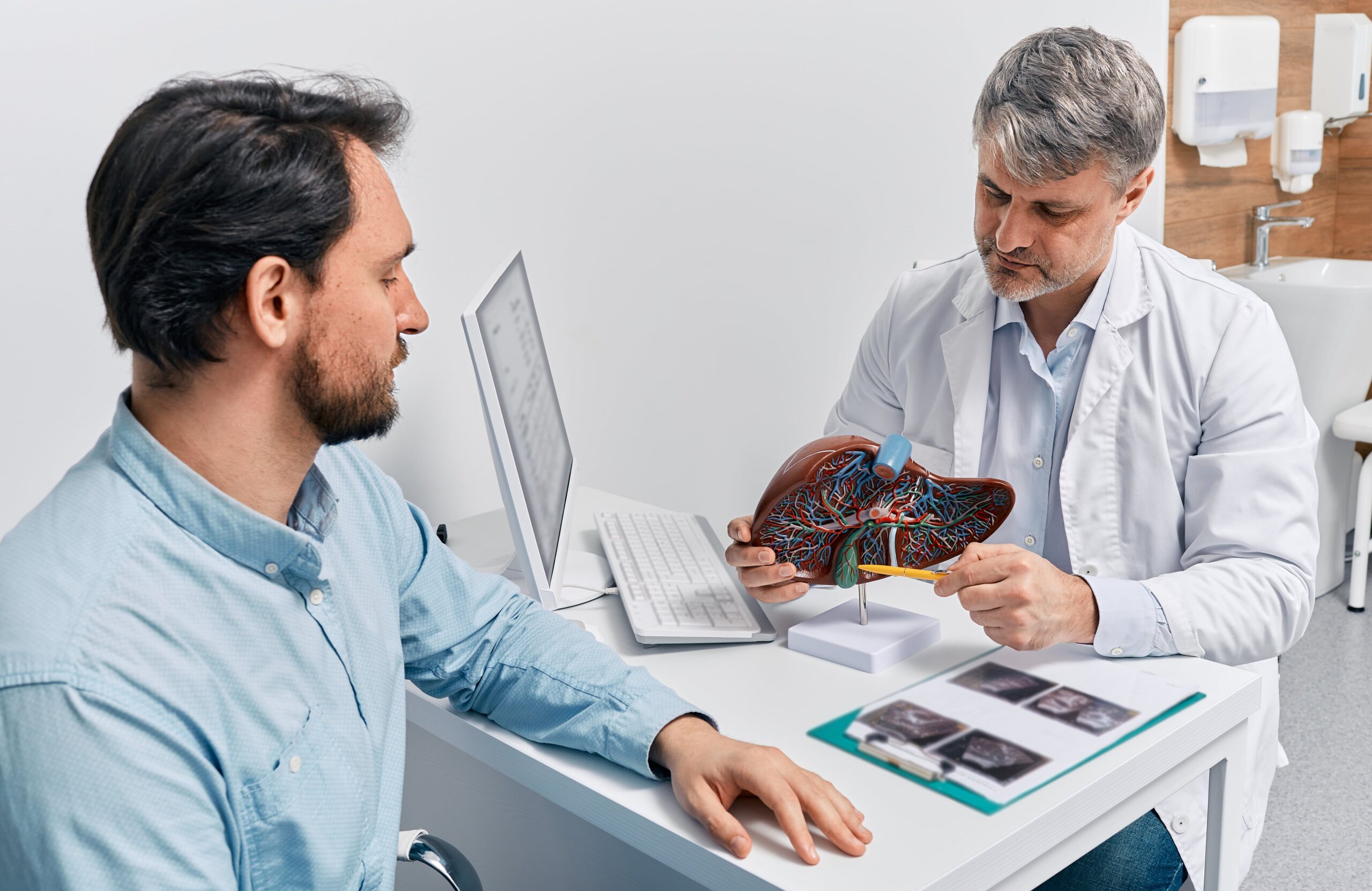
Alcohol-Induced Hepatitis: Symptoms, Causes, and Treatment
Alcohol-induced hepatitis is a condition characterized by inflammation of the liver caused by excessive alcohol consumption. It is a serious health concern that can lead to significant liver damage if left untreated. By understanding this condition, you can make informed decisions about your drinking and seek the proper medical help.
Understanding Alcohol-Induced Hepatitis
What is Alcohol-Induced Hepatitis?
Alcohol-induced hepatitis (also called alcoholic hepatitis) is liver inflammation due to prolonged and excessive alcohol drinking. The liver is crucial for metabolizing alcohol, but when it is overwhelmed by too much alcohol, it can damage and inflame liver cells. This condition can vary in severity. It can range from acute hepatitis caused by temporary alcohol overindulgence to chronic hepatitis. Chronic hepatitis poses a higher risk of permanent liver damage, such as cirrhosis.
How Does Alcohol Use Cause Hepatitis?
When alcohol is consumed, it is processed by the liver. Alcohol offers no nutritional value and instead breaks down into toxic chemicals. Chronic, heavy alcohol use can overload the liver with toxins and fat, leading to liver damage. The liver responds to this injury by triggering an inflammatory response, which is an attempt to heal and protect itself. If the assault on the liver is constant, the inflammation becomes persistent and can result in swelling and tissue damage.
Who is at Risk for Alcohol-Induced Hepatitis?
People who drink heavily are at higher risk of getting alcohol hepatitis. It’s important to note that not everyone who consumes alcohol excessively will develop this condition.
Genes are a factor as well. For example, a family history of alcohol use or liver disease can increase your risk. Even small amounts of alcohol can cause hepatitis and cirrhosis in some people.
Symptoms of Alcohol-Induced Hepatitis
Alcohol-induced hepatitis often has no noticeable symptoms until the liver is severely damaged. Some common symptoms associated with this condition include:
- Feeling sick
- Unexplained weight loss
- Loss of appetite
- Yellowing of the skin and eyes (jaundice)
- Swelling in the ankles and abdomen
- Confusion or drowsiness
- Vomiting blood or passing blood in stools
The symptoms vary in severity depending on the stage of alcohol-induced hepatitis and the person’s overall health. In some cases, doctors may diagnose alcohol-induced hepatitis incidentally. They find it during tests for other conditions or at a late stage of liver damage.

Diagnosing Alcohol-Induced Hepatitis
Diagnosing alcohol-induced hepatitis involves a combination of medical history evaluation, physical examination, and diagnostic tests. Your doctor may use the following tests to confirm the presence of alcohol-induced hepatitis:
Blood Tests
Blood tests can provide valuable information about liver function and detect markers of liver inflammation. Some common blood tests used in diagnosing alcohol-induced hepatitis include liver function studies, blood cell counts, bleeding times, electrolyte tests, and tests for other chemicals in the body.
Imaging Tests
Imaging tests, such as ultrasounds, CT scans, and MRIs, can help visualize the liver and assess its condition. These noninvasive tests can provide detailed images of the liver, allowing your doctor to evaluate the extent of liver damage.
Liver Biopsy
A liver biopsy involves taking a small sample of liver tissue to be examined under a microscope. This procedure helps find the type and severity of liver disease and provides valuable information to guide treatment decisions.
Treatment for Alcohol-Induced Hepatitis
The main goal of treating alcohol-induced hepatitis is to stop more liver damage and to help the liver heal. The following approaches are commonly used in managing this condition:
Stopping Alcohol Consumption
The most crucial step in treating alcohol-induced hepatitis is to stop drinking alcohol altogether. Stopping alcohol consumption allows the liver to recover and reduces the risk of further liver damage.
Alcohol Addiction Support Services
For individuals struggling with alcohol addiction, seeking professional help through alcohol addiction support services is crucial. These services can provide counseling, therapy, and medication to address the underlying addiction and support long-term sobriety.
Liver Transplant
In severe cases of alcohol hepatitis, the liver stops working and does not get better with not drinking. At this point, a liver transplant may be needed. Liver transplant candidates must meet specific criteria and undergo a thorough evaluation process. Note: you must completely abstain from alcohol before and after a liver transplant.

The Role of Nutrition in Liver Health
Good nutrition is key, as it supports liver recovery and limits further damage. This is especially important when dealing with alcohol-induced hepatitis. A balanced diet should focus on whole foods like fruits, vegetables, whole grains, and lean proteins. These foods provide the nutrients needed to repair and regrow the liver. Avoiding foods laden with high levels of fats, salts, and sugars is crucial, as these can exacerbate liver inflammation and impair healing processes.
Certain nutrients, like vitamins B and E, omega-3 fatty acids, and antioxidants, offer extra benefits. These nutrients help combat oxidative stress and inflammation, promoting liver recovery. Talk with your doctor or a dietitian to design a diet tailored to the needs of alcohol-induced hepatitis. This personalized nutrition strategy helps the liver recover and is key to managing and improving liver health.
Complications of Alcohol-Induced Hepatitis
Alcohol-induced hepatitis can lead to several complications, some of which can be life-threatening. These complications include:
- Liver cirrhosis: Prolonged alcohol-induced hepatitis can result in liver cirrhosis, a condition characterized by significant scarring of the liver tissue. Cirrhosis disrupts the normal liver structure and function, leading to severe health complications.
- Liver failure: Advanced alcohol-induced hepatitis can progress to liver failure, where the liver can no longer perform its essential functions. Liver failure is a life-threatening condition that may require immediate medical intervention.
- Hepatocellular carcinoma: Individuals with alcohol-induced hepatitis have an increased risk of developing liver cancer, particularly hepatocellular carcinoma (HCC). Regular monitoring and early detection are crucial for managing this complication.
Contact Us for Hepatitis Treatment
Alcohol-induced hepatitis is a serious condition that can lead to significant liver damage if left untreated.
If you or someone you know is navigating the challenges associated with alcohol-induced hepatitis, remember that you’re not alone. The specialists at Gastroenterology of Greater Orlando provide expert care and support, guiding patients through personalized treatment plans designed to enhance liver health and overall well-being. Take control of your health today by contacting Gastroenterology of Greater Orlando, where your journey toward healing and treatment for liver health.